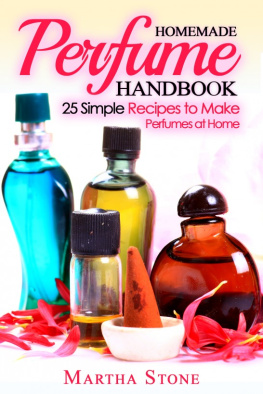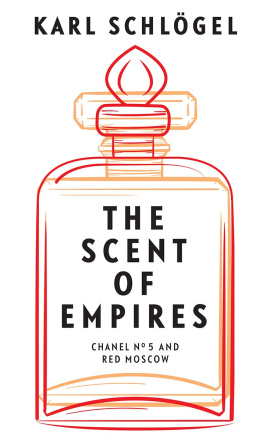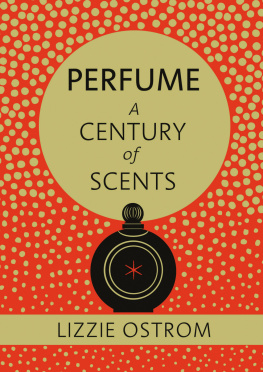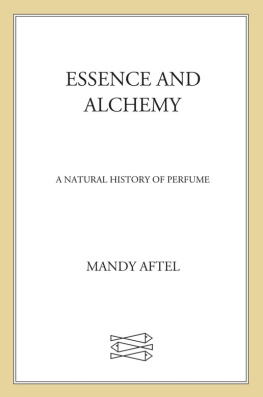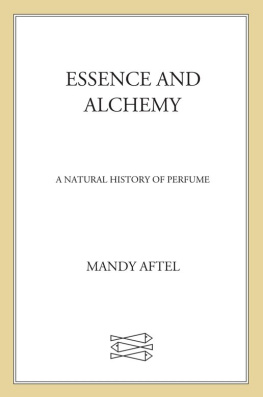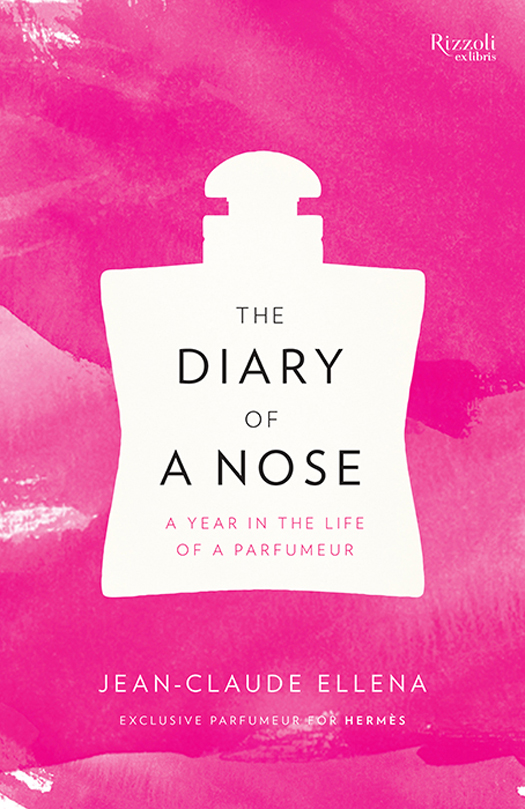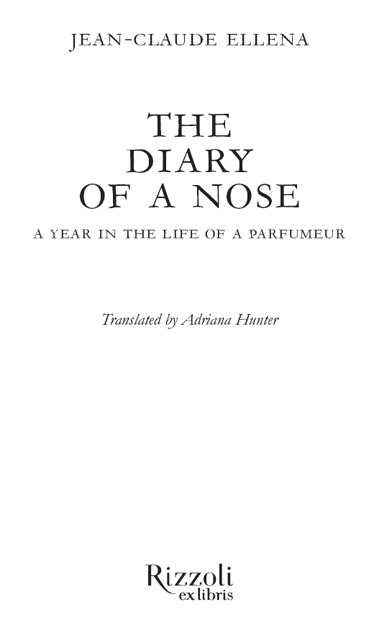THE DIARY OF A NOSE
ALSO BY JEAN-CLAUDE ELLENA
Perfume: The Alchemy of Scent
First published in hardcover in the United States of America in 2013
by Rizzoli Ex Libris, an imprint of
Rizzoli International Publications, Inc.
300 Park Avenue South
New York, N.Y. 10010
www.rizzoliusa.com
First published in France as Journal dun parfumeur by Sabine Wespieser, 2011
First published in Great Britain by Particular Books,
an imprint of Penguin Books Ltd., 2012
This Ebook Edition
Copyright Jean-Claude Ellena, 2011
Translation copyright Adriana Hunter, 2012
All rights reserved. No part of this publication may be reproduced, stored in a retrieval system, or transmitted in any form or by any means, electronic, mechanical, photocopying, recording, or otherwise, without prior consent of the publishers.
2013 2012 2011 2010
eISBN: 978-0-8478-4043-4
v3.1
To my wife, Susannah
Smell is a word, perfume is literature .
CONTENTS
Paris, Thursday 19 October 2009
Pleasure
I dont feel comfortable talking about pleasure; I find it easier to talk about desire. Since I started composing perfumes Ive learned, Ive invented catchphrase-smells, like the first sentence, the first notes of a piece of music, the initial images that are reworked at length to capture a readers, a listeners, a spectators attention. So that he or she wants to carry on, in order to pursue the pleasure. In a society where speed is everything, perfumes are judged in a couple of seconds, as if at a glance. The hastiness of these assessments upsets me: a perfume can only truly tell its story when it is smelled and worn.
I like pleasures when they are shared, that is my definition of luxury. I transpose this ideal on to the perfumes I create, which are mostly meant to be shared by men and women. If I compose a mens fragrance for a wide audience, I never fail to slip in some womens ciphers, and vice versa for a so-called womens perfume. Fashions codes were invented to be transgressed, to be played on; so I dont believe perfumes should be for women, for men, mixed or unisex. It is the people who wear them who give them their gender. In India, men have been wearing Yves Saint Laurents Opium, Guerlains Shalimar and Diors Jadore since they were launched. I avoid pigeonholing, putting things in boxes, I would rather give people the freedom to choose, to appropriate each of my creations for themselves.
Pleasures, small pleasures: I like the pleasures we pilfer from everyday life, they brighten the day. They are mundane, they feel repetitive, they reassure. If we overlook them we deprive ourselves of the joys that make life bearable.
I take pleasure in composing, but some mornings the pleasure just isnt there in that little bottle. Physically, chemically, the draft of the perfume is the same same temperature, same combination of raw materials, of molecules but smelling it affords me no pleasure at all. This fills me with feelings of despair and loneliness, and I have to suppress them. Sharing these misgivings with anyone else would mean condemning the work Ive been doing for weeks, so when this happens, I put the bottle down and forget about it for a few days. I know that the initial pleasure, the idea I was pursuing, will come back to me.
On the plane, Saturday 31 October 2009
Giono
Im on the shuttle, heading for Nice. My laboratory is in Cabris. My only luggage, one bag and one book: Gionos Les trois arbres de Palzem, a collection of the chronicles that were not included in the Pliade edition of his Rcits et essais. When I feel lost, I read Giono to set me back on track. He works his way inside me, acts as a point of reference. Funny, the French for of reference de repre sounds like dheureux pre, of happy father; yes, he acts as a happy father to me. When I read his work, I mouth each word silently to myself. I need to hear the music of his words in my head, the rhythm of his sentences, the silences.
I like his writing, his inventiveness, his sensuality; and, when he talks about smells, I admire him. His passages about literature resonate with the way that I write perfumes. I think that smells are signs, and that a perfume enthusiast interprets these signs as the perfume develops on his skin or on the fine sliver of a test blotter. He smells it, pursues it, abandons it, comes back to it; I cant say whether it is the perfume or the enthusiast who is beholden to the other.
As a perfumer, when I want to evoke a smell, I use signs that taken separately have no connection with the thing Im expressing: there has never been any tea in Bulgaris Eau parfume au th vert, mango in Un Jardin sur le Nil by Herms, or flint in Terre dHerms, yet the public feels they are there. To cite Jean Giono, Although perfumers are traditionally compared to musical composers, I have always felt like a writer of smells.
Cabris, Monday 2 November 2009
The workshop
I was back in the workshop this morning. An architects house, it was built in the late 1960s in the spirit of concrete architecture, which strives to link buildings with their natural environment. Here, the outside is inside, and the inside extends outside, each conditioning the other. The house clings to grey rocks and is surrounded by a wild garden planted with Salzmanns pines. It could feel austere, yet is anything but. The sun filtering through the pine trees floods the workshop with soothing light. Time passes more slowly here, the seasons more noticeably. I love this place. I feel in tune with it.
A visitor looking at my desk would find it littered with dozens of tightly sealed little bottles, test-blotter-holders shaped like windmills, a worn file filled with a hundred formulae, a pot of coloring pencils, boxes of junk, a photo frame. Still, it cant be called a mess so long as I know where to find the formula for the draft I stopped working on a few months back, the grey crayon that I need, the box with the worn pencil eraser and the paper clips, not to mention my glasses the ones for reading and the ones for distances. For me this mess is connected to memory. When everything is organized, I forget.
Behind the desk a varnished beechwood table from Ikea is a chair that I use the way the travel agent does his in Jacques Tatis Playtime: everything is within reach by shuffling a few steps. From there, I can look out to the Mediterranean. Actually, when Im lost in smells and formulae, I dont see anything, but I know the sea is there. I just have to stop smelling, stop writing and look up for a moment to appreciate it.
Cabris, Friday 6 November 2009
Pears
I emerge exhausted after creating a perfume. The decision is made at last. An international launch is planned for next April. There were a substantial number of trials and drafts several hundred which is an indication of how difficult it is to find a guiding line, a form that expresses the concept. The project is bold and demanding; the bottle a technical feat. Then comes the fear that it wont find an audience. Each new olfactory story is a gamble.
Obviously, I have other projects on the go, but the work feels bland, it lacks breadth, presence and identity. Im glum. I decide to take the afternoon off. I call my wife and suggest spending a bit of time in Italy (which is only an hours drive away), sharing a plate of pasta and stocking up on groceries at the market in Ventimiglia. The market there is an institution. It operates every Friday and sells produce that is not only in season but in that very day, such as snails and mushrooms (provided it rained the previous Tuesday or Wednesday), not to mention Italian delicacies that cant be found anywhere else. We particularly like the great variety of dried mushrooms, the sundried, sun-blush and preserved tomatoes, and, most of all, a Parmesan cheese more than seven years old. This week several stalls are selling winter pears, small crimson-colored pears whose fragrance reigns over the market. I bury my nose into a fruit display, taking the salesman by surprise, and he says:


